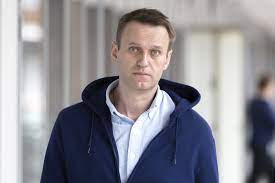
The sudden death of prominent Russian opposition leader Alexei Navalny has sent shockwaves through Russia and the international community, triggering accusations of foul play and demands for accountability.
Navalny, a 47-year-old former lawyer and fierce critic of Russian President Vladimir Putin, died on Friday after reportedly falling unconscious during a walk at the “Polar Wolf” penal colony in Kharp, approximately 1,900 km northeast of Moscow. Russian prison authorities stated that Navalny succumbed to “sudden death syndrome,” a vague term encompassing various cardiac syndromes resulting in sudden cardiac arrest and death.
However, Navalny’s family and supporters are skeptical of this explanation. His mother, Lyudmila Navalnaya, was informed that an investigation into his death was ongoing, and his body would not be released to the family until its completion. Furthermore, conflicting reports emerged regarding the whereabouts of Navalny’s body, with uncertainty prevailing over its location.
The response from Western leaders was swift and condemning. US President Joe Biden and other Western officials paid tribute to Navalny’s courage and directly implicated Putin in his death, although no evidence linking the Russian president to the incident has been presented. The United Kingdom warned of repercussions for Russia, while the Kremlin dismissed the accusations as “absolutely rabid” and insisted on awaiting the results of the investigation.
Navalny’s death comes at a critical juncture for Russian politics, with Putin poised to maintain power until at least 2030. His supporters had likened him to figures like Nelson Mandela, envisioning him as a transformative leader for Russia. However, opinions on Navalny within Russia were divided, with some viewing him as a destabilizing force with alleged ties to foreign intelligence agencies.
In response to Navalny’s death, protests and memorials erupted across Russia, with hundreds of people arrested by authorities. Critics of Putin’s regime see Navalny’s demise as emblematic of the dangers facing dissenters in modern-day Russia, while his supporters vow to carry on his vision despite the loss of their leader.
Navalny’s spokeswoman, Kira Yarmysh, declared that while they may have lost their leader, they have not lost their ideals. As questions surrounding Navalny’s death persist, demands for transparency and justice echo both within Russia and beyond its borders, highlighting the enduring impact of his activism and the ongoing struggle for political freedom in the country.
Sources By Agencies


